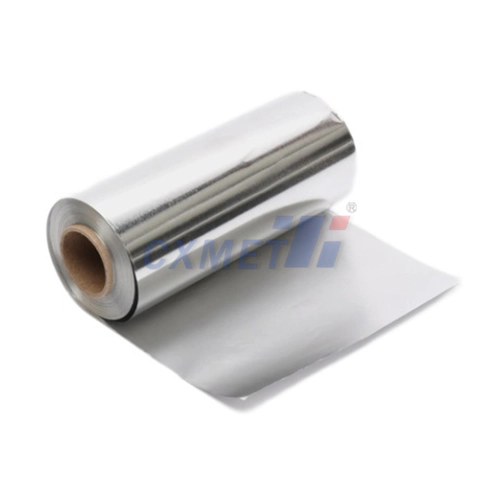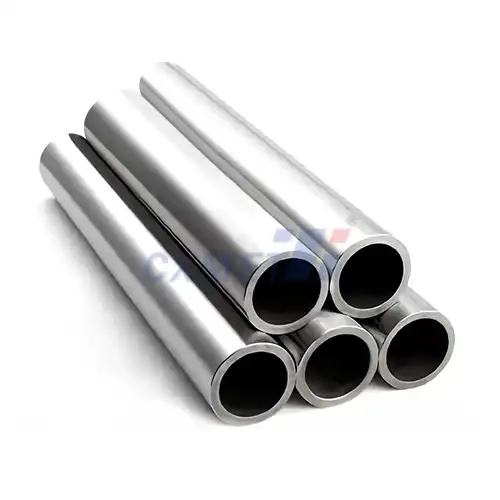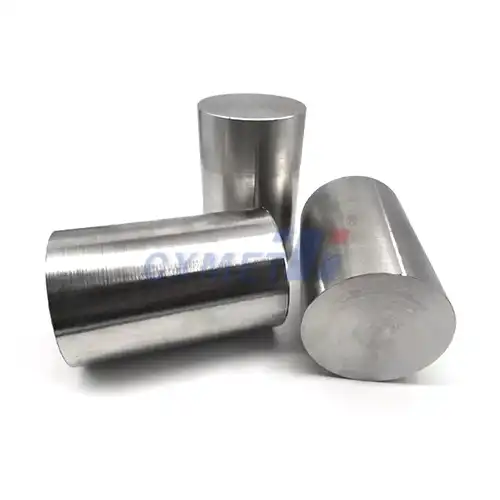- English
- French
- German
- Portuguese
- Spanish
- Russian
- Japanese
- Korean
- Arabic
- Greek
- German
- Turkish
- Italian
- Danish
- Romanian
- Indonesian
- Czech
- Afrikaans
- Swedish
- Polish
- Basque
- Catalan
- Esperanto
- Hindi
- Lao
- Albanian
- Amharic
- Armenian
- Azerbaijani
- Belarusian
- Bengali
- Bosnian
- Bulgarian
- Cebuano
- Chichewa
- Corsican
- Croatian
- Dutch
- Estonian
- Filipino
- Finnish
- Frisian
- Galician
- Georgian
- Gujarati
- Haitian
- Hausa
- Hawaiian
- Hebrew
- Hmong
- Hungarian
- Icelandic
- Igbo
- Javanese
- Kannada
- Kazakh
- Khmer
- Kurdish
- Kyrgyz
- Latin
- Latvian
- Lithuanian
- Luxembou..
- Macedonian
- Malagasy
- Malay
- Malayalam
- Maltese
- Maori
- Marathi
- Mongolian
- Burmese
- Nepali
- Norwegian
- Pashto
- Persian
- Punjabi
- Serbian
- Sesotho
- Sinhala
- Slovak
- Slovenian
- Somali
- Samoan
- Scots Gaelic
- Shona
- Sindhi
- Sundanese
- Swahili
- Tajik
- Tamil
- Telugu
- Thai
- Ukrainian
- Urdu
- Uzbek
- Vietnamese
- Welsh
- Xhosa
- Yiddish
- Yoruba
- Zulu
What are the Benefits of Using Titanium Hex Bars Over Other Materials?
2025-03-20 15:31:38
Titanium Hex Bar For Sale have gained significant popularity in various industries due to their exceptional properties and versatility. These hexagonal-shaped bars made from titanium alloys offer a unique combination of strength, lightweight, and corrosion resistance that sets them apart from other materials. In this blog post, we'll explore the numerous benefits of using titanium hex bars and why they're becoming the material of choice for many applications.
|
|
|
How does the strength-to-weight ratio of titanium hex bars compare to other metals?
One of the most significant advantages of Titanium Hex Bar For Sale is their impressive strength-to-weight ratio. This property makes them an ideal choice for applications where both strength and weight reduction are crucial. When compared to other commonly used metals, titanium hex bars stand out for their exceptional performance in this aspect.
Titanium has a density of about 4.5 g/cm³, which is approximately 60% that of steel (7.85 g/cm³) and 50% that of nickel alloys (8.9 g/cm³). Despite being much lighter, titanium alloys used in hex bars can achieve tensile strengths comparable to or even exceeding those of many steel alloys. For instance, Grade 5 titanium (Ti-6Al-4V), a popular alloy used in hex bars, has a tensile strength of about 900 MPa, which is similar to or higher than many high-strength steels.
This exceptional strength-to-weight ratio offers several benefits in various applications:
- Aerospace: Titanium hex bars are widely used in aircraft and spacecraft components, where weight reduction is critical for fuel efficiency and performance. Their high strength allows for thinner, lighter parts without compromising structural integrity.
- Automotive: In high-performance vehicles and racing cars, titanium hex bars are used for components like connecting rods, valves, and suspension parts. The weight reduction contributes to better acceleration, handling, and fuel economy.
- Marine: Titanium's excellent strength-to-weight ratio makes it ideal for marine applications, where reducing weight while maintaining strength is essential for improved vessel performance and fuel efficiency.
- Medical: In medical implants and surgical instruments, titanium hex bars provide the necessary strength while minimizing the overall weight of devices, improving patient comfort and reducing fatigue for medical professionals.
Moreover, the high strength-to-weight ratio of titanium hex bars allows for downsizing in many applications. This means that components made from titanium can often be smaller and lighter than their counterparts made from other materials, leading to overall weight savings in the final product. This property is particularly valuable in industries where every gram counts, such as aerospace and high-performance sports equipment.
It's worth noting that while titanium hex bars offer an excellent strength-to-weight ratio, they may not always be the strongest option in absolute terms. Some high-strength steels and nickel superalloys can achieve higher absolute strength values. However, when considering the combination of strength and weight, titanium often comes out on top, making it the material of choice for applications where this balance is critical.
What makes titanium hex bars resistant to corrosion in harsh environments?
Titanium Hex Bar For Sale are renowned for their exceptional corrosion resistance, making them an excellent choice for applications in harsh and corrosive environments. This remarkable property is due to the formation of a stable, protective oxide layer on the surface of the titanium, which provides a natural barrier against corrosion.
The corrosion resistance of titanium hex bars can be attributed to several factors:
- Passive Oxide Layer: When exposed to oxygen, titanium rapidly forms a thin, adherent oxide film (primarily TiO2) on its surface. This passive layer is highly stable and self-healing, meaning it will quickly reform if damaged, providing continuous protection against corrosive elements.
- Chemical Stability: Titanium is highly resistant to many corrosive substances, including chlorides, sulfates, and most organic acids. This stability is due to the metal's high affinity for oxygen, which makes it difficult for other elements to react with the titanium surface.
- Wide pH Range Resistance: Titanium hex bars maintain their corrosion resistance across a broad range of pH levels, from highly acidic to alkaline environments. This versatility makes them suitable for use in diverse chemical processing applications.
- Resistance to Pitting and Crevice Corrosion: Unlike many other metals, titanium is highly resistant to localized forms of corrosion, such as pitting and crevice corrosion, which can be particularly problematic in marine and chemical processing environments.
The corrosion resistance of titanium hex bars offers numerous benefits in various industries:
- Chemical Processing: Titanium hex bars are used in the construction of chemical processing equipment, such as reactors, heat exchangers, and piping systems, where resistance to corrosive chemicals is essential for long-term reliability and safety.
- Oil and Gas: In offshore oil and gas production, titanium components, including those made from hex bars, are used in seawater cooling systems, desalination plants, and subsea equipment due to their excellent resistance to saltwater corrosion.
- Marine Applications: Titanium hex bars are ideal for marine hardware, propeller shafts, and other components exposed to seawater, as they resist corrosion far better than traditional marine-grade stainless steels.
- Aerospace: In aircraft engines and structures, titanium's corrosion resistance helps prevent degradation from exposure to various fluids and atmospheric conditions, ensuring long-term reliability and safety.
- Medical Implants: The biocompatibility and corrosion resistance of titanium make it an excellent choice for medical implants, as it resists degradation in the body's corrosive environment.
It's important to note that while titanium hex bars offer excellent general corrosion resistance, there are some specific environments where they may be susceptible to attack. For instance, titanium can be vulnerable to hydrofluoric acid, hot concentrated sulfuric acid, and some molten salts. However, in most industrial and environmental conditions, titanium outperforms many other metals in terms of corrosion resistance.
The long-term cost savings associated with using corrosion-resistant titanium hex bars can be significant. While the initial cost of titanium may be higher than some alternative materials, its durability and resistance to corrosion often result in lower maintenance costs, reduced downtime, and longer service life, especially in harsh environments where other materials might fail prematurely.
|
|
|
How does the machinability of titanium hex bars affect their use in precision engineering?
The machinability of Titanium Hex Bar For Sale is a crucial factor in their use for precision engineering applications. While titanium offers numerous benefits in terms of strength, weight, and corrosion resistance, its machinability presents both challenges and opportunities for manufacturers and engineers.
Titanium's machinability characteristics include:
- High Strength Retention at Elevated Temperatures: Titanium maintains its strength at high temperatures generated during machining, which can lead to rapid tool wear if not managed properly.
- Low Thermal Conductivity: Titanium's poor heat dissipation can cause heat to concentrate at the cutting edge, potentially leading to premature tool failure.
- Work Hardening: Titanium tends to work harden during machining, which can increase cutting forces and affect surface finish if not addressed.
- Chemical Reactivity: At high temperatures, titanium can react with cutting tool materials, leading to rapid tool wear and potential contamination of the workpiece.
Despite these challenges, the use of titanium hex bars in precision engineering has grown significantly due to advancements in machining techniques and tools. Here's how the machinability of titanium hex bars affects their use in precision engineering:
- Specialized Cutting Tools: The development of cutting tools specifically designed for titanium machining, such as those with optimized geometries and coatings, has improved machinability and precision.
- Advanced Cooling Techniques: The use of high-pressure coolant systems and cryogenic cooling has helped overcome the heat dissipation issues, allowing for higher cutting speeds and improved surface finish.
- Rigid Machine Setups: The use of rigid machine tools and work holding systems helps minimize vibration and deflection during machining, crucial for achieving tight tolerances.
- Optimized Cutting Parameters: Careful selection of cutting speeds, feeds, and depths of cut tailored to titanium's properties ensures efficient material removal and high-quality surface finishes.
- Finishing Techniques: Advanced finishing methods, such as electrochemical machining and abrasive flow machining, can achieve extremely fine surface finishes on titanium components.
The impact of titanium's machinability on precision engineering applications includes:
- Aerospace Components: Titanium hex bars are machined into complex, high-precision parts for aircraft engines, structural components, and fasteners. The ability to maintain tight tolerances is crucial for ensuring safety and performance in aerospace applications.
- Medical Implants: Precision-machined titanium components are used in various medical implants, such as joint replacements and dental implants, where exact dimensions and surface finishes are critical for proper function and biocompatibility.
- High-Performance Racing: In motorsports, titanium hex bars are machined into lightweight, high-strength components like connecting rods and valves, where precise tolerances are essential for optimal engine performance.
- Scientific Instruments: Titanium's properties make it ideal for components in precision scientific instruments, where dimensional stability and resistance to environmental factors are crucial.
While the machining of titanium hex bars can be more challenging and time-consuming compared to some other materials, the benefits often outweigh the drawbacks in precision engineering applications. The ability to create complex, high-precision components with excellent strength-to-weight ratios and corrosion resistance makes titanium an attractive choice for many high-performance applications.
Advancements in machining technology continue to improve the efficiency and precision of titanium machining. For instance, the adoption of multi-axis CNC machines, advanced CAM software, and additive manufacturing techniques for near-net-shape production have all contributed to making titanium hex bars more accessible and cost-effective for precision engineering applications.
In conclusion, while the machinability of Titanium Hex Bar For Sale presents some challenges, ongoing advancements in machining technology and techniques have made it possible to achieve high precision and excellent surface finishes. This has expanded the use of titanium in various precision engineering applications, where its unique combination of properties provides significant advantages over other materials.
At SHAANXI CXMET TECHNOLOGY CO., LTD, we take pride in our extensive product range, which caters to diverse customer needs. Our company is equipped with outstanding production and processing capabilities, ensuring the high quality and precision of our products. We are committed to innovation and continuously strive to develop new products, keeping us at the forefront of our industry. With leading technological development capabilities, we are able to adapt and evolve in a rapidly changing market. Furthermore, we offer customized solutions to meet the specific requirements of our clients. If you are interested in our products or wish to learn more about the intricate details of our offerings, please do not hesitate to contact us at sales@cxmet.com. Our team is always ready to assist you.
|
|
|
|
References
- ASM International. (2015). ASM Handbook, Volume 2: Properties and Selection: Nonferrous Alloys and Special-Purpose Materials.
- Boyer, R., Welsch, G., & Collings, E. W. (1994). Materials Properties Handbook: Titanium Alloys. ASM International.
- Donachie, M. J. (2000). Titanium: A Technical Guide. ASM International.
- Ezugwu, E. O., & Wang, Z. M. (1997). Titanium alloys and their machinability—a review. Journal of Materials Processing Technology, 68(3), 262-274.
- Froes, F. H. (2015). Titanium: Physical Metallurgy, Processing, and Applications. ASM International.
- Lütjering, G., & Williams, J. C. (2007). Titanium. Springer Science & Business Media.
- Peters, M., Kumpfert, J., Ward, C. H., & Leyens, C. (2003). Titanium alloys for aerospace applications. Advanced Engineering Materials, 5(6), 419-427.
- Rack, H. J., & Qazi, J. I. (2006). Titanium alloys for biomedical applications. Materials Science and Engineering: C, 26(8), 1269-1277.
- Schutz, R. W., & Watkins, H. B. (1998). Recent developments in titanium alloy application in the energy industry. Materials Science and Engineering: A, 243(1-2), 305-315.
- Yang, X., & Liu, C. R. (1999). Machining titanium and its alloys. Machining Science and Technology, 3(1), 107-139.









.webp)
